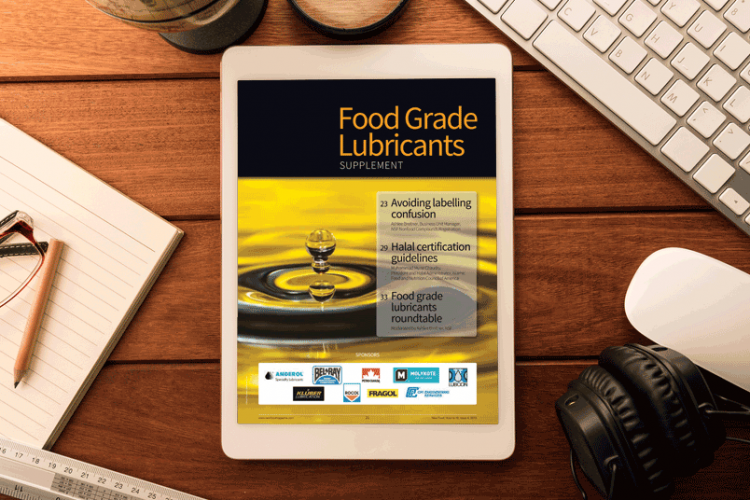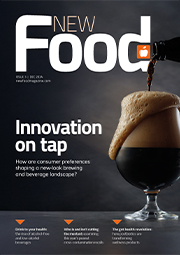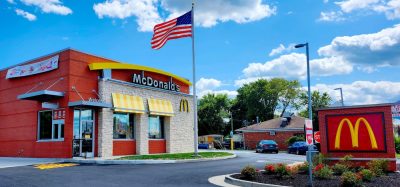Food Grade Lubricants supplement 2013
Posted: 2 September 2013 | Ashlee Breitner, Muhammad Munir Chaudry | 1 comment
Ashlee Breitner explains how to avoid labelling confusion, Muhammad Munir Chaudry discusses halal certification guidelines for food grade lubricants, and food grade lubricant experts discuss the latest developments in our roundtable…


This free to view Food Grade Lubricants supplement is sponsored by CPI Engineering Services, FRAGOL, ROCOL, Klüber Lubrication, LUBCON, Molykote, Petro-Canada, Bel-Ray and ANDEROL.
- Avoiding labelling confusion
Ashlee Breitner, Business Unit Manager, NSF Nonfood Compounds Registration
The majority of consumers are well-versed when it comes to deciphering product labels on cereals, frozen meals, snacks, beverages and other packaged foods. Very often, a quick scan of the ingredient list, nutritional information, certifications, ‘free from’ claims and ‘best by’ date tells us much of what we need to know about the identity, quality and shelf life of the food about to be purchased. While consumer product labels have evolved over time to become increasingly user-friendly and readable at a glance, the same is not necessarily true for industrial chemicals, including food grade lubricants… - Halal certification guidelines for food grade lubricants
Muhammad Munir Chaudry, President and Halal Administrator, Islamic Food and Nutrition Council of America
Processed and packaged foods have become a norm in the food industry, such that unpackaged foods globally constitute a much smaller part of the overall food supply. For the past 50 years, the trend has been to buy not just meat products but also food products, food ingredients, cosmetics, nutraceuticals, pharmaceuticals and even fruit and vegetables from a package. For the past few years, the focus in the Muslim community has shifted to packaging materials, lubricants and logistics. Use of processing equipment and packaging materials introduced an element of incidental contamination of the contents of a package in the form of processing aids and lubricants. Halal has become a global standard and marketing tool. Halal certification has gained universal recognition for both exports and domestic products. This paper discusses in detail how lubricant manufacturers can have their products certified as Halal to receive global acceptance… - Food Grade Lubricants Roundtable
Moderator: Ashlee Breitner, Business Unit Manager, Nonfood Compounds & Food Contact Material Compliance, NSF
This Food Grade Lubricants supplement is restricted - login or subscribe free to access


Why subscribe? Join our growing community of thousands of industry professionals and gain access to:
- bi-monthly issues in print and/or digital format
- case studies, whitepapers, webinars and industry-leading content
- breaking news and features
- our extensive online archive of thousands of articles and years of past issues
- ...And it's all free!
Click here to Subscribe today Login here
Issue
Related topics
Related organisations
ANDEROL B.V., Bel-Ray Company, CPI Engineering Services, Fragol, Klueber Lubrication, Lubcon, MolyKote, NSF International, Petro-Canada, ROCOL









I´m interested in this lubricants ’cause my customers are in the food segment.